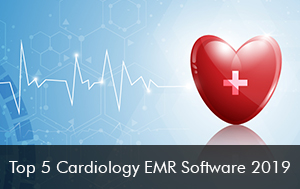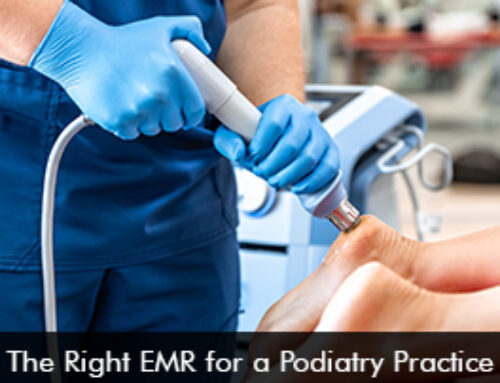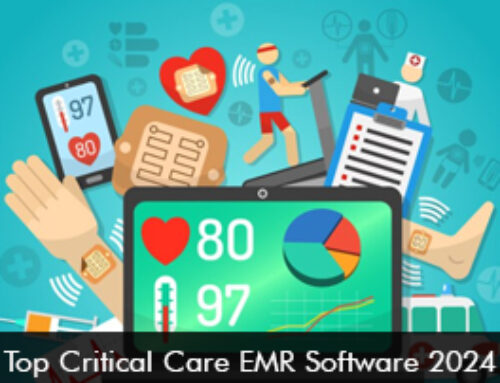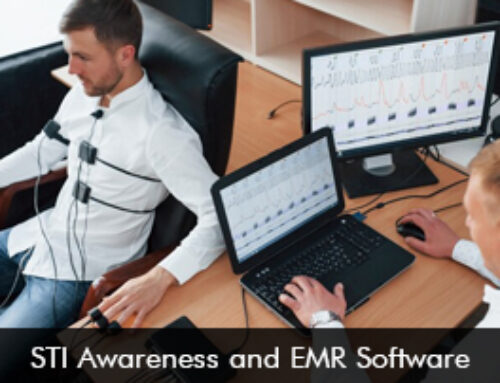Cardiology is a complicated specialty and practices which offer cardiology require constant checks and balances. Cardiology practices need to track patient’s information through multiple sources including images, clinical notes, lab test results etc. This information should be reliable and easily accessible to physicians so that it can be shared with other labs and hospitals. Paper notes are not only tedious to compile but are also time-consuming and error friendly. Today’s cardiology practices have realized that it is extremely beneficial to switch to digital patient charts, Electronic Medical Records (EMR) software and Electronic Health Records (EHR) software.
The Cardiology EMR/EHR software is designed to meet the specific needs of cardiology practices. Cardiology is without a doubt the biggest and most complex healthcare specialty. The top Cardiology EMR systems provide many features like support for nuclear stress tests and Holter tests, E&M coding advice customized for cardiologists, support for arterial and aortoiliac duplex imaging, multiple templates for pacemakers, cath exams, and Coumadin visits.
Main features of Top Cardiology EMR Software:
To have a good understanding of how a software works, it is advisable to learn about the different features and functionalities of the software. Before choosing a Cardiology EHR Software, you should check if the software has the following key features:
Medical Device Integration
Because cardiology relies heavily on medical devices to monitor and examine patient conditions the EMR software must be able to integrate with the devices generating results automatically to save time and effort.
PQRI Reporting
Procedures in cardiology generate a high percentage of PQRI. Because of this, the electronic medical records (EMR) software solution should be equipped with reporting functions for these as well as other pay-for-performance measures which are important for any practices payment structure.
Workflow Management
If you work in a Cardiology EHR practice, you need to deal with recording and storing large volumes of data. The EHR software should be able to manage, document and maintain all the cardiology related workflows. This helps the physicians in having a better understanding of the condition of the patient and helps them in taking the right decisions at the right times.
Coding and Billing
The cardiology specific top EMR systems must provide coding to verify ICD-10 and CPT codes that are associated with the diagnosis. This allows for direct connectivity with billing software ensuring faster payments that are accurate.
Cardiology Dashboard
The top Cardiology EMR software systems must feature a real-time dashboard which will help physicians to clearly view patient charts, profiles, billing processes, scheduling etc. all at one place. The dashboard also saves the time taken in opening multiple tabs.
Top 5 Cardiology EMR Software offered by EMRSystems:
EMRSystems values its customers and has compiled a list of the 5 best and top-rated Cardiology EMR & EHR software solutions for physician practices in 2019. The list is solely based on customer reviews and ratings and is as follows:
| Product | Cardiology-Specific Templates | Device Integration | PQRI Reporting | Documentation Management | Cardiology Dashboard | e-Prescribing (e-Rx) |
| Athenahealth | ✓ | ✓ | ✓ | ✓ | ✓ | ✓ |
| drchrono | ✓ | ✓ | ✓ | ✓ | ✓ | ✓ |
| NueMD | ✓ | ✓ | ✓ | ✓ | ✓ | ✓ |
| AdvancedMD | ✓ | ✓ | ✓ | ✓ | ✓ | ✓ |
| Kareo | ✓ | ✓ | ✓ | ✓ | ✓ | ✓ |







